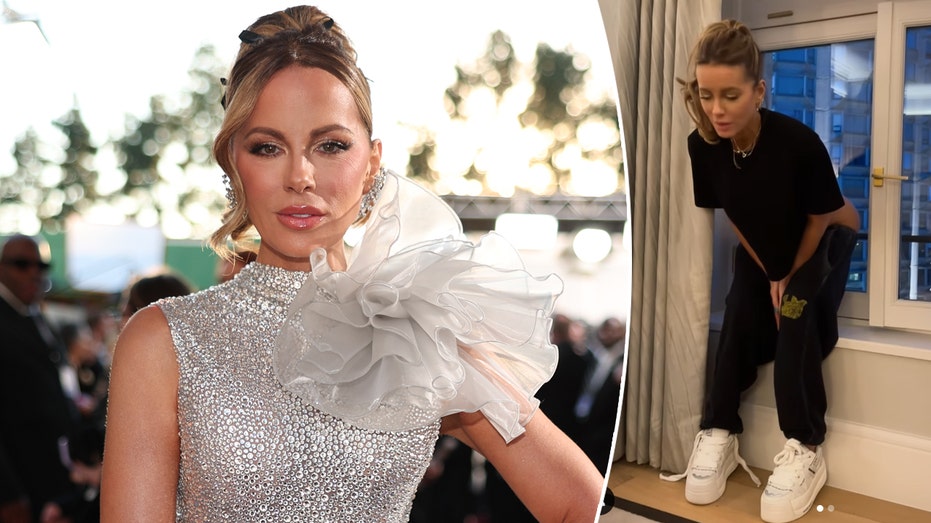Biden Hired a Hell of a Lot of People Who Look Nothing Like Him
From the moment, a month ago, that Kamala Harris became the Democrats’ presumptive nominee for president, she has been derided by Republicans as a “DEI hire” and “DEI vice president.” Besides being willfully ignorant of what DEI actually is and how it works, this an obviously racist attempt to demean a barrier-breaking Black woman. The absurd implication is that President Biden only chose Harris as his running mate in 2020 because of her race and gender—rather than, say, her impressive experience as San Francisco district attorney, California attorney general, or U.S. senator. But there is an accidental truth buried in this GOP lunacy that Democrats ought to celebrate. Harris does owe her historic status as the first female, non-white major-party presidential nominee in part to the old white man who selected her as his vice president and then, in ending his campaign precisely when he did this summer, paved the way for her to assume the top of the ticket. And while she’s the most high-profile example, Harris is just one of a long list of women and people of color whom Biden has put into positions of authority in the executive and judicial branches. In fact, somewhat under the radar, Biden has appointed what experts say is the most diverse high-ranking administration and judiciary in history. This may be his most enduring legacy—and he was able to accomplish it in part because he’s a white man, which neutralizes the right’s favorite racist dog whistles. Harris won’t be so lucky. Today, two-thirds of Biden’s 15-member Cabinet are non-white or female; if you include the acting secretaries of labor as well as housing and urban development, the Cabinet is majority-women. Nearly two-thirds of Biden’s confirmed, lifetime judicial appointees are women, according to tallies by the Leadership Conference on Civil and Human Rights, and nearly two-thirds are people of color—judges and justices who will have an impact long after Biden leaves office.There are also numerous firsts: Biden appointed the first Muslim woman to a federal court and the first Native Hawaiian woman ever to serve as a lifetime judge. Interior Secretary Deb Haaland is the first Native American to serve as a Cabinet secretary. Karine Jean-Pierre is the first Black female White House press secretary. And, most prominently, Ketanji Brown Jackson is the first Black female Supreme Court justice.Previous Democratic presidents have pledged to appoint a Cabinet and senior staff that look like America. But Biden actually delivered.“What he has done is historic. What he has done is unprecedented,” civil rights leader Ralph Neas, former director of the Leadership Conference, told me. “Joe Biden has literally changed the face of the federal government’s leadership. Such achievements have been talked about for decades. But Joe Biden was the one who did it.” While Biden’s hiring accomplishments haven’t gotten much attention, they are very much by design, says Jessica Fulton, vice president of policy for the Joint Center for Political and Economic Studies. The Biden-Harris transition team in 2020—for which Fulton volunteered—set very public goals for hiring a team that was diverse in every way, not just their race, gender, or ethnicity, she told me. (Notably, more than 40 percent of Biden’s confirmed, lifetime judicial nominees have been people with experience as public defenders or civil rights advocates, the Leadership Conference said.) And then the Biden administration partnered with organizations and initiatives committed to diversity to help identify qualified candidates who otherwise might not be on the administration’s radar screen, she said. It’s not about racking up diversity statistics for its own sake; it’s about bringing a different perspective to roles that affect marginalized communities, Fulton noted. Having Cecelia Rouse, who was, from 2021 to 2023, the first Black woman to chair the Council of Economic Advisers in its 75-year history, or Shalanda Young, the first Black woman to head the Office of Management and Budget, provides a minority experience to jobs more often held by white males. Ditto Reta Jo Lewis, the first Black woman and person of color to head the Export-Import Bank, and Michael S. Regan, the first Black man to head the Environmental Protection Agency. Biden is even outpacing Barack Obama’s two-term record on diversity in the Cabinet and courts: Obama successfully appointed 16 women to Cabinet or sub-Cabinet positions during his eight years while Biden has successfully appointed 13 in less than one term, according to the Center for American Women and Politics at Rutgers University. A then-record 42 percent of Obama’s judicial picks were women, according to a Pew Research Center analysis, less than Biden’s majority-female slate of court picks. Pew calculated that 36 percent of all of Obama’s judicial appointees were non-white; a Washington Post analysis in May shows the reverse for Biden: 36 percent of his overall judicial selections

From the moment, a month ago, that Kamala Harris became the Democrats’ presumptive nominee for president, she has been derided by Republicans as a “DEI hire” and “DEI vice president.” Besides being willfully ignorant of what DEI actually is and how it works, this an obviously racist attempt to demean a barrier-breaking Black woman. The absurd implication is that President Biden only chose Harris as his running mate in 2020 because of her race and gender—rather than, say, her impressive experience as San Francisco district attorney, California attorney general, or U.S. senator.
But there is an accidental truth buried in this GOP lunacy that Democrats ought to celebrate. Harris does owe her historic status as the first female, non-white major-party presidential nominee in part to the old white man who selected her as his vice president and then, in ending his campaign precisely when he did this summer, paved the way for her to assume the top of the ticket. And while she’s the most high-profile example, Harris is just one of a long list of women and people of color whom Biden has put into positions of authority in the executive and judicial branches.
In fact, somewhat under the radar, Biden has appointed what experts say is the most diverse high-ranking administration and judiciary in history. This may be his most enduring legacy—and he was able to accomplish it in part because he’s a white man, which neutralizes the right’s favorite racist dog whistles. Harris won’t be so lucky.
Today, two-thirds of Biden’s 15-member Cabinet are non-white or female; if you include the acting secretaries of labor as well as housing and urban development, the Cabinet is majority-women. Nearly two-thirds of Biden’s confirmed, lifetime judicial appointees are women, according to tallies by the Leadership Conference on Civil and Human Rights, and nearly two-thirds are people of color—judges and justices who will have an impact long after Biden leaves office.
There are also numerous firsts: Biden appointed the first Muslim woman to a federal court and the first Native Hawaiian woman ever to serve as a lifetime judge. Interior Secretary Deb Haaland is the first Native American to serve as a Cabinet secretary. Karine Jean-Pierre is the first Black female White House press secretary. And, most prominently, Ketanji Brown Jackson is the first Black female Supreme Court justice.
Previous Democratic presidents have pledged to appoint a Cabinet and senior staff that look like America. But Biden actually delivered.
“What he has done is historic. What he has done is unprecedented,” civil rights leader Ralph Neas, former director of the Leadership Conference, told me. “Joe Biden has literally changed the face of the federal government’s leadership. Such achievements have been talked about for decades. But Joe Biden was the one who did it.”
While Biden’s hiring accomplishments haven’t gotten much attention, they are very much by design, says Jessica Fulton, vice president of policy for the Joint Center for Political and Economic Studies. The Biden-Harris transition team in 2020—for which Fulton volunteered—set very public goals for hiring a team that was diverse in every way, not just their race, gender, or ethnicity, she told me. (Notably, more than 40 percent of Biden’s confirmed, lifetime judicial nominees have been people with experience as public defenders or civil rights advocates, the Leadership Conference said.) And then the Biden administration partnered with organizations and initiatives committed to diversity to help identify qualified candidates who otherwise might not be on the administration’s radar screen, she said.
It’s not about racking up diversity statistics for its own sake; it’s about bringing a different perspective to roles that affect marginalized communities, Fulton noted. Having Cecelia Rouse, who was, from 2021 to 2023, the first Black woman to chair the Council of Economic Advisers in its 75-year history, or Shalanda Young, the first Black woman to head the Office of Management and Budget, provides a minority experience to jobs more often held by white males. Ditto Reta Jo Lewis, the first Black woman and person of color to head the Export-Import Bank, and Michael S. Regan, the first Black man to head the Environmental Protection Agency.
Biden is even outpacing Barack Obama’s two-term record on diversity in the Cabinet and courts: Obama successfully appointed 16 women to Cabinet or sub-Cabinet positions during his eight years while Biden has successfully appointed 13 in less than one term, according to the Center for American Women and Politics at Rutgers University. A then-record 42 percent of Obama’s judicial picks were women, according to a Pew Research Center analysis, less than Biden’s majority-female slate of court picks. Pew calculated that 36 percent of all of Obama’s judicial appointees were non-white; a Washington Post analysis in May shows the reverse for Biden: 36 percent of his overall judicial selections are white.
And of course, it was Biden who made the historic pick of Jackson to the high court. It was something civil rights advocates had hoped Obama would do but understood why it would have been risky (and he did pick two women, one of whom is the first Latina on the court). While the American public elected a man who could bring his own Black experience to the job, they didn’t always want to hear it. Witness what happened when Obama had the nerve to express his personal reaction to Henry Louis “Skip” Gates, the late Black Harvard professor, being arrested by local police after he entered his own home (a neighbor had reported a possible burglary). Obama said the Cambridge police “acted stupidly,” rightly noting that “you probably don’t need to handcuff a guy, a middle-aged man who uses a cane, who’s in his own home”—but the backlash was loud enough that he hosted an awkward “beer summit” at the White House with Gates and the arresting officer.
“It’s hard for a person of color, who was a first, was a trailblazer, to make an appointment like that” to the Supreme Court, Montré Carodine, a University of Alabama School of Law professor, told me. “Biden has the privilege of not having to think about that.”
One of the reasons Biden has not gotten much credit from the progressive community—or criticism from the right, except for endorsing Harris for the nomination—is that he is white and male.
“There was always this expectation that Barack Obama [was] going to favor Black people,” said Christopher Stout, an Oregon State University professor and author of the book The Case for Identity Politics: Polarization, Demographic Change, and Racial Appeals. “All African American candidates have to be really careful in how they talk about race,” and definitely in how they put people of color in positions of power, he added. “Whites don’t have the same fear that [Biden] is going to favor African Americans, because he’s one of them.”
In other words: If Harris wins the White House this fall, and then attempts to do Biden one better in the diversity of her appointments, rest assured that Republicans will be in hysterics over her “DEI” picks.


